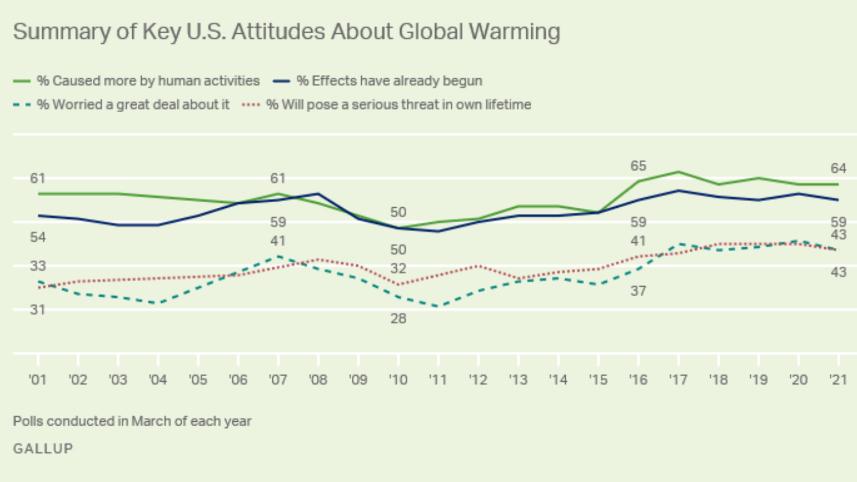Slightly less than two thirds of Americans realize that global warming is caused by human activities, and slightly more than two thirds realize that most scientists believe that global warming is occurring, according to a new poll from Gallup. But the partisan polarization of opinion on climate change continues to be clear: "Even as Americans' views about global warming have been steady over the past six years," Gallup writes, "the positions held by Republicans and Democrats have increasingly diverged."
Asked "And from what you have heard or read, do you believe increases in the Earth's temperature over the last century are due more to the effects of pollution from human activities or natural changes in the environment that are not due to human activities?" 64% of respondents chose the human activities response and 34% chose the natural changes response, with 2% expressing no opinion. The human activities response was preferred by 88% of Democrats, 65% of independents, and 32% of Republicans.
Asked "Just your impression, which of the one following statements do you think is most accurate?" 68% of respondents preferred "most scientists believe that global warming is occurring," 5% preferred "most scientists believe that global warming is NOT occurring," and 25% preferred "most scientists are unsure about whether global warming is occurring or not," with 2% expressing no opinion. The "most scientists believe that global warming" statement was preferred by 87% of Democrats, 67% of independents, and 44% of Republicans.
According (PDF) to Gallup's report, the poll was conducted by telephone interviews conducted March 1-15, 2021, with a random sample of 1,010 adults, aged 18 and older, living in all 50 U.S. states and the District of Columbia; the sample was weighted to correct for unequal selection probability, nonresponse, and double coverage of landline and cell users in the two sampling frames, and to match national demographics. The maximum margin of sampling error for the total sample was +/- 4 percent at the 95% confidence level.


